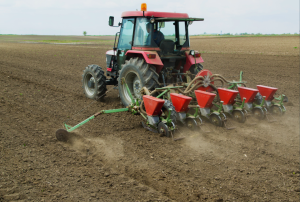With agribusinesses facing the complex challenges of our time – from increasing demand for sustainable practices to the need for heightened precision in operations – it’s no surprise that technology is playing a pivotal role. Among the suite of innovations emerging in the field, farm management systems (FMS) have proven to be a powerful ally for agribusinesses looking to scale up while remaining efficient and competitive.
The Modern-Day Farming Revolution
The advent of farm management systems marks a critical shift from traditional, labour-intensive farming to smart agriculture, which leverages data and automation to optimise on-farm activities. These systems encompass a range of software and hardware tools that gather, process, and interpret data from the farm, transforming it into actionable insights for better farm management.
- The Benefits Are Plentiful
The integration of FMS brings forth a plethora of advantages for agribusinesses. Enhanced efficiency and productivity are achieved through precision farming techniques, aligning activities with the specific needs of each section of a field. Decision-makers benefit from real-time data analytics, making on-the-fly adjustments to operations. Even cost reduction is possible, thanks to the smarter use of resources and proactive maintenance schedules.
- Understanding the Features
To fully harness the potential of FMS, it’s essential to grasp their core features. These include robust data collection and analysis tools, inventory management systems to track materials and supplies, and crop monitoring platforms for real-time surveillance of crops. Financial tracking is equally important, as it provides visibility into the economic health of the operation, ensuring sustainable growth.
Real-World Scenarios of Success
A look into case studies reveals the tangible impact FMS has on agribusiness growth. One farm, for instance, utilised an FMS to streamline their irrigation schedule and saw a reduction in water usage, improving both resource efficiency and crop yields. Meanwhile, another business leveraged crop data to optimise their planting techniques, leading to better-quality produce and an increase in sales.
Preparing for the Future
The path forward is paved with technological advancements in FMS, which promise even more efficiency and sustainability. For instance, the integration of artificial intelligence could lead to autonomous decision-making, and the emergence of blockchain technology could revolutionise supply chain transparency within the agribusiness sector.
Final Harvest
For agribusinesses, the adoption of farm management systems is more than just a technological upgrade – it’s a strategic move that aligns operations with the demands of the marketplace. These systems not only facilitate growth but also enable the sustainability and resilience needed for a thriving agricultural industry. Interested in learning more? Contact us.











